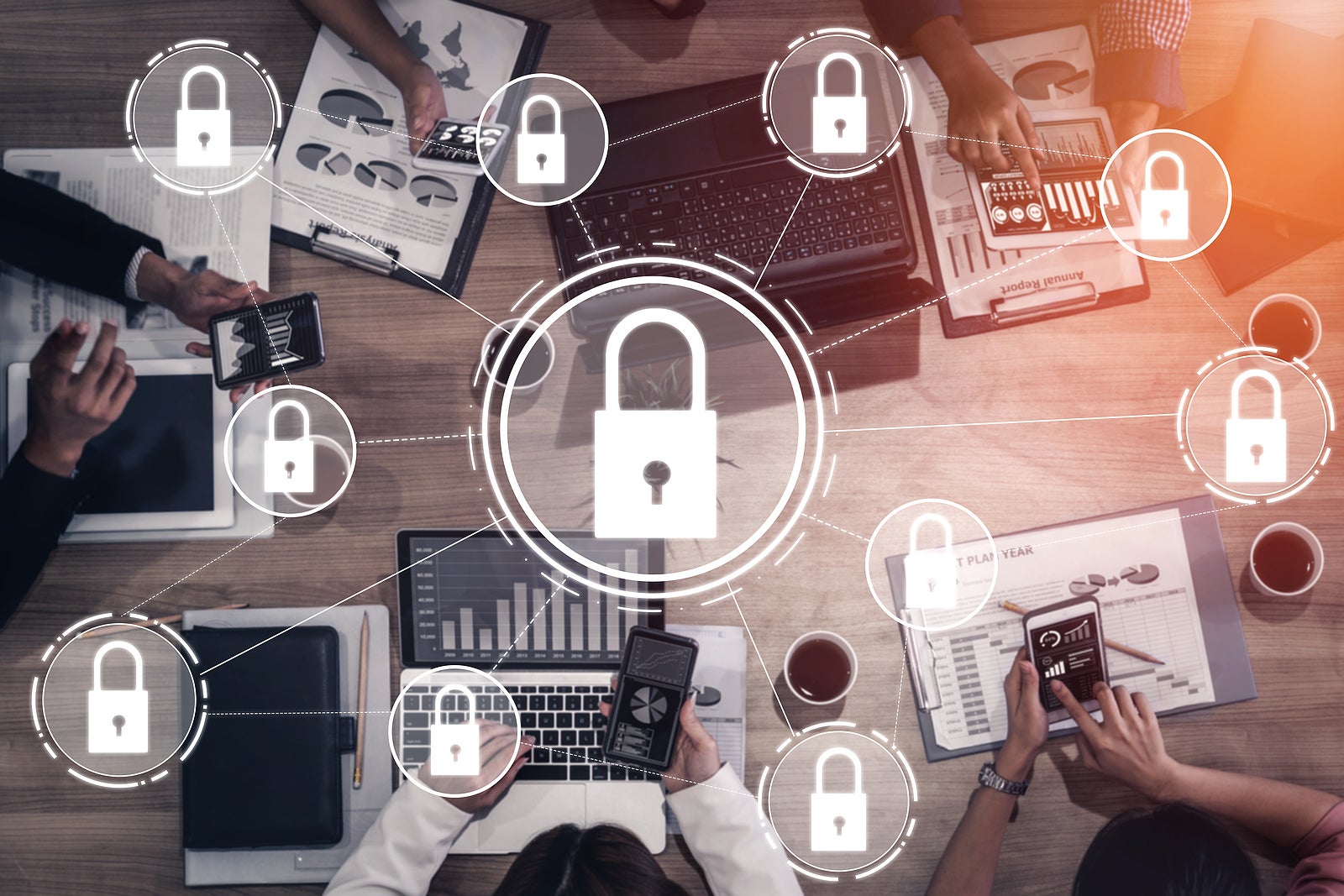
Are you confident that your business is cybersecure? Has the introduction of remote working brought about new risks? A recent survey CNBC survey found that phishing scams, spam and other cybersecurity threats have spiked as a result of more people working remotely during the Covid-19 pandemic.
And as more businesses undergo digital transformations at an accelerated pace, implementing robust security measures is essential in avoiding more economically catastrophic consequences.
Read more about the growing risks of cybercrime below, the broader role of information security, and how to make your business more secure in 2020.
What is cybercrime?
In short, cybercrime involves computers, networks, programs, devices or data that are used to commit a crime or are a target of crime itself. These calculated attacks can threaten the security and financial health of individuals and businesses alike.
The costs of cybercrime for businesses are considerable and wide ranging. As well as general disruption to workflow and productivity, cyber criminals can steal large amounts of money, personal data, intellectual property and more – as well as committing acts of fraud in a businesses name.
The reputational impacts of such attacks can be just as damaging if customers and stakeholders lose faith in your cybersecurity measures.
Why is robust cybersecurity growing in importance?
Unfortunately, as technology advances, so does the scope of cybercrime. Increased financial, political and ethical incentives are also driving attackers.
Cyber attacks are increasing in size, sophistication and cost at an alarming rate, with several high-profile businesses suffering publicly disclosed hacks in recent years. June of this year saw the Japanese gaming giant announce that some 300,000 player accounts had been compromised by hackers. Last summer, meanwhile, credit score agency Equifax agreed to pay up to $700m in fines and compensation following a breach of 147 million personal accounts in 2017.
And with an ever-growing number of human and digital targets due to interconnected devices and exponentially increasing data storage demands, the challenge of making businesses cyber secure is only getting tougher.
What is information security?
Moving your operations online still leaves other assets at risk. While cybersecurity involves protecting your systems and networks from attacks or unauthorised access, information security is the broader term given to the defence and governance of all your digital and physical information.
The confidentiality, availability and integrity of a business’s information assets is vital to long-term success in a way that many traditional tangible assets no longer are. And with ever greater regulatory and reporting demands, information security is also important in ensuring regulatory compliance.
How to enhance your information security
There are a number of steps required to establish or enhance your business information security. Partnering with an external consultancy firm will help you work through them as thoroughly as possible.
First is to conduct an internal and external audit to understand how various systems are being used and identify potential threats. Evaluating the results will guide how you respond, including designing and implementing security controls where appropriate. As technology and your business evolves, these activities should then be analysed and adjusted on an ongoing basis.
Is your business equipped for the new era?
2208 Views












